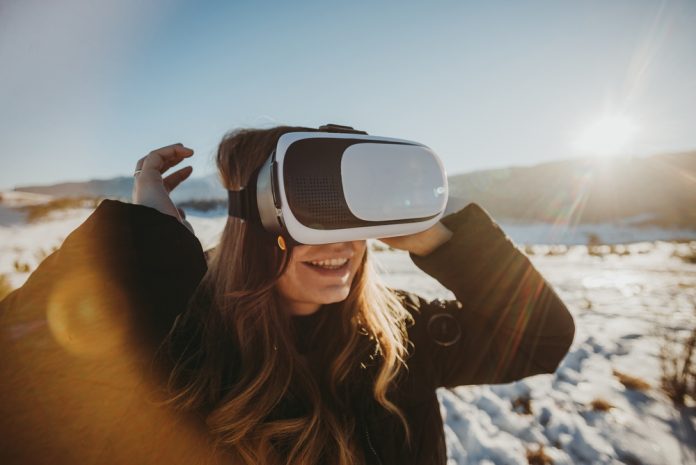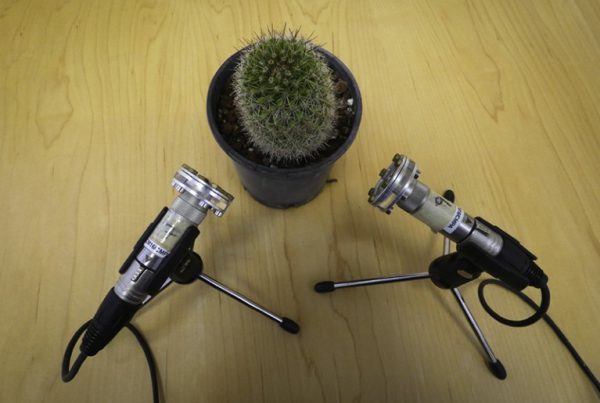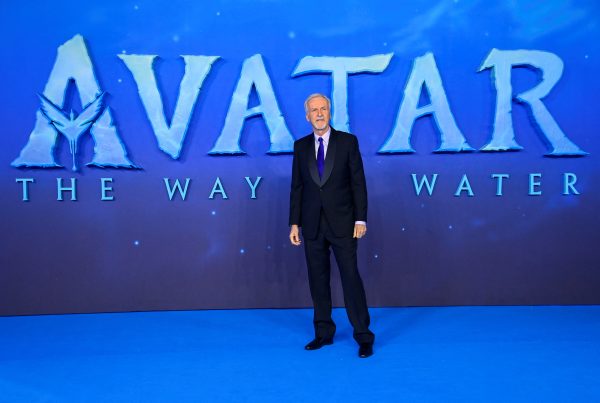Escaping reality has never been easy, but a new world-first mental health initiative hopes to help people forget their worries using virtual reality.
The Edge of the Present provides virtual reality (VR) environments for people suffering mental health issues and is being rolled out on the Sunshine Coast.
Psychological studies regularly highlight the powerful effect that exposure to nature has on the mind.
The ‘biophilia hypothesis’ centres on the observation that a connection with the planet’s natural state – the sound of running water, the sensation of earth underfoot – assists in stress reduction, and improves mental wellbeing overall.
In one virtual reality experience, birdsong floats softly by as a gentle wave of cool air tickles your face in a beautiful winter wonderland.
The scene envelopes the user in a comforting hug, providing the mind and soul with much-needed respite.
As you hesitantly close the door on this magical vista, you will find yourself eager to discover what is next on this unique globe-trotting journey.
Another turn of the door handle and you’re in the belly of a tropical jungle. Oversized green leaves form a canopy above and you spy the blue sky peeking through the thick vegetation.
To free the mind of burden simply by stepping through a door is the ultimate gift for people living with depression, anxiety, sensory overload or autism.
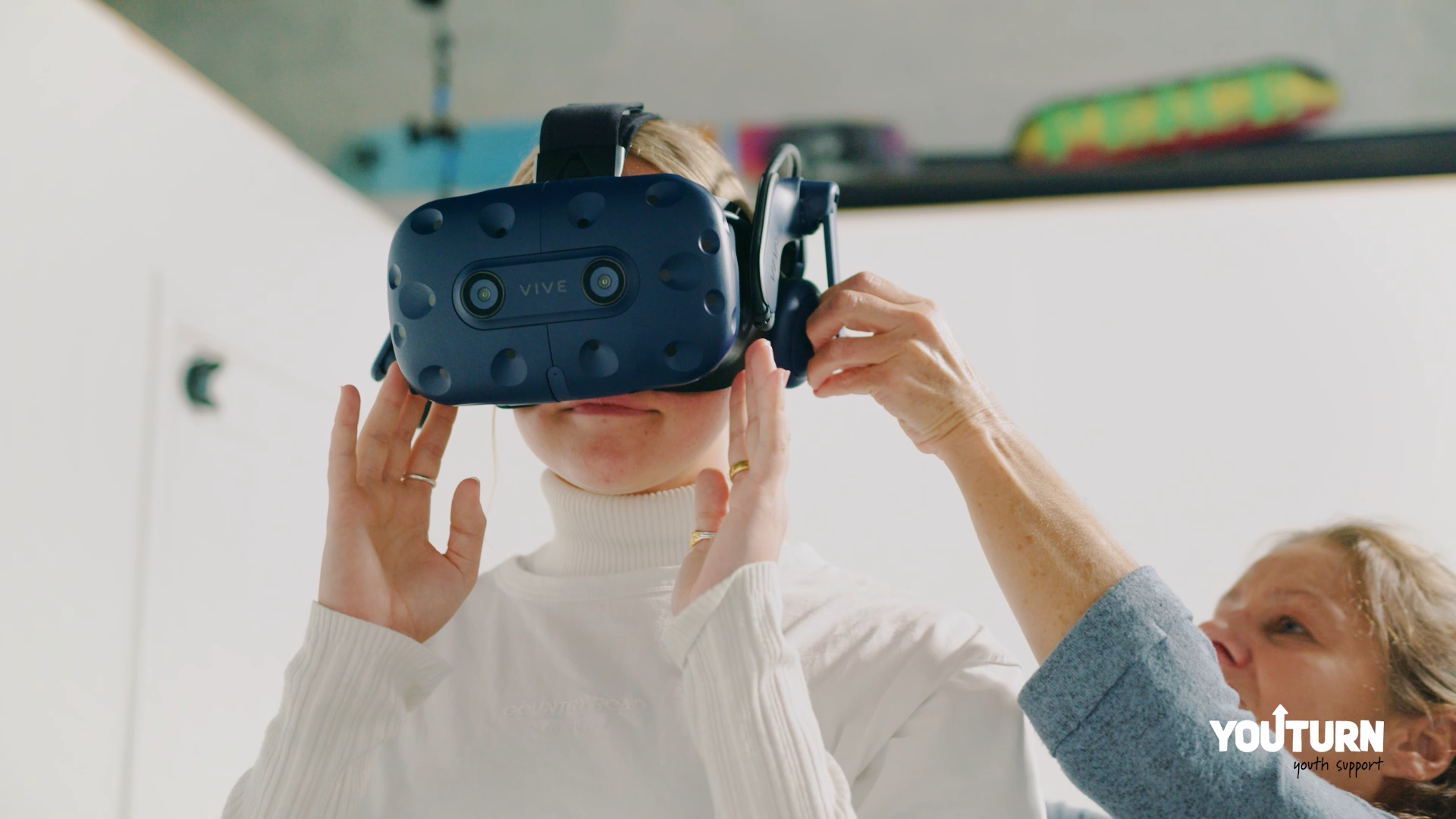
Edge of the Present (EOTP), is an innovative and powerful non-therapeutic tool designed as a 10-minute experience, where users are invited to explore multiple spectacular landscapes using mixed-reality software, with the aim of improving mood, wellbeing and positive future thinking.
Through these embodied virtual explorations, the user learns that openness and curiosity lead to positively reinforcing experiences which can enrich their internal space.
The installation project, funded by the Suicide Prevention Research Fund, was developed for The Big Anxiety Festival in 2019 and created by University of New South Wales Scientia Professor Jill Bennett and supported by Professor Katherine Boydell from the Black Dog Institute.
“This research is the first to assess the effectiveness of such an immersive mixed-reality experience as an intervention for depression and hopelessness. It does so by rapidly increasing positive mood and stimulating positive future thinking,” Prof Bennett says.
The experience aims to cultivate the capacity for future thinking by encouraging positive actions that are rewarded in an instant feedback loop.
“The experience is not just a passive one but involves the user making choices to open doors and windows… each choice is rewarded by positive sensation. So, for example, you open a door and feel the breeze on your face, or step out into the warmth of a sun-baked meadow.
“On the one hand it’s relentlessly positive. There are all these beautiful scenes, it’s impossible not to like. But on the other hand, it’s important that the user has agency and that this very positive sensation, and this amazingly beautiful resplendent scene, is coming as a result of your direct action.”
Try VR for free
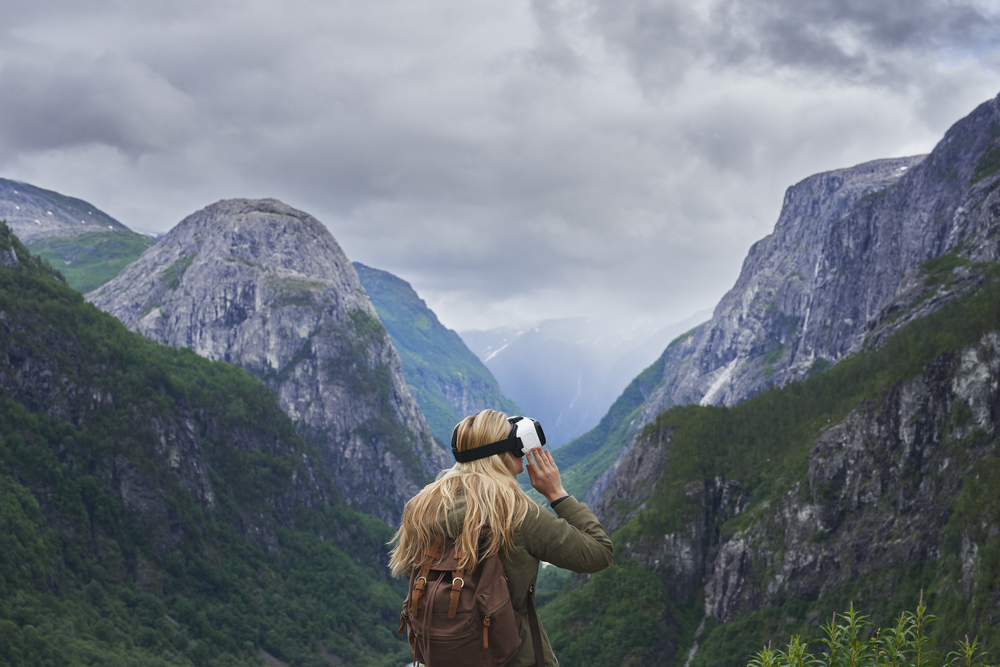
The EOTP VR equipment is available until the end of September free of charge to the community thanks to local not-for-profit mental health organisation Youturn.
The Youturn team works with young people cross a range of issues including child safety, suicide prevention and homelessness.
Youturn CEO Dr Tanya Bell says the program presents an innovative solution to help support young people.
“Young people are less likely than any other age group to seek professional help,” Dr Bell says. “At times young people struggle with traditional talk therapy methods in a typical clinical environment.
“Sitting face to face with a stranger in a small room to discuss deeply emotional and personal issues can be confronting and difficult and as a result young people are less likely than any other age group to seek professional help.
“Many young men in particular are dissuaded to seek help, but we believe that the EOTP has enormous potential for those who are typically comfortable with technology and gaming.”
Funding EOTP for three months was a no brainer, adds Youturn spokeswoman Antoinette Lloyd.
“We run five headspace centres across the southeast and there is so much demand. We seek innovative ways to support… and complement what we offer at headspace.
“As a mother, I know that people are hesitant when it comes to children using technology too much. The reality is our young people are comfortable with it and this can help them by displaying these beautiful scenes that encourage them to go out and explore.
“I witnessed two teen boys living with autism who came through and used the VR. One of the boys had high sensory issues. Within 30 seconds of starting the VR, his whole body relaxed. Until then, I myself hadn’t appreciated how quickly it could work. It provides an innovative solution for young people while they wait for therapy appointments.”
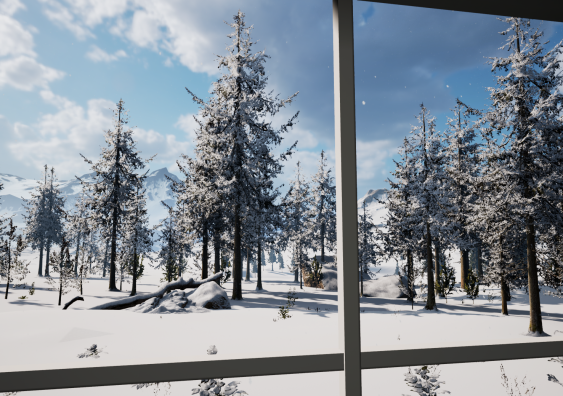
The Youturn team is fundraising for additional tools and solutions to help alleviate the demand. One of these solutions will be the construction of permanent VR rooms at the organisation’s five headspace centres.
“We have earmarked $80,000 to do the rooms,” Youturn’s Antoinette Lloyd says. “Instead of the headsets, participants will use the VR glasses.
“The next version should be coming out in February and we are working with them to have that available.”
To participate: The Edge of the Present experience is free of charge and available for people of any age. To book your session, visit youturn.org.au/i-see-a-brighter-future.
Source: How this ‘relentlessly positive’ virtual world can help you escape reality

